AITAH for telling my 14 year old son I was not his biological father after my wife had an affair on me?
In the wake of a decade-long marriage, one father’s impulsive act has torn open old wounds and reshaped a family’s future. After discovering his wife’s months-long affair, he chose to confront her—and in a bid for revenge, he revealed to his teenage son that he is not his biological father.
What began as a moment of personal betrayal escalated into an emotional crisis, leaving the son reeling and severing the bond with his mother. Amid shock and tears, the father declared that he would always be there for the boy, even as he plotted his next steps toward divorce and custody battles.
This raw and messy situation isn’t just about infidelity; it’s a story of trust, identity, and the unforeseen costs of using personal pain as a weapon. With emotions running high and family ties fraying, the fallout has left everyone questioning where loyalty truly lies—and at what cost revenge can come.

‘AITAH for telling my 14 year old son I was not his biological father after my wife had an affair on me?’
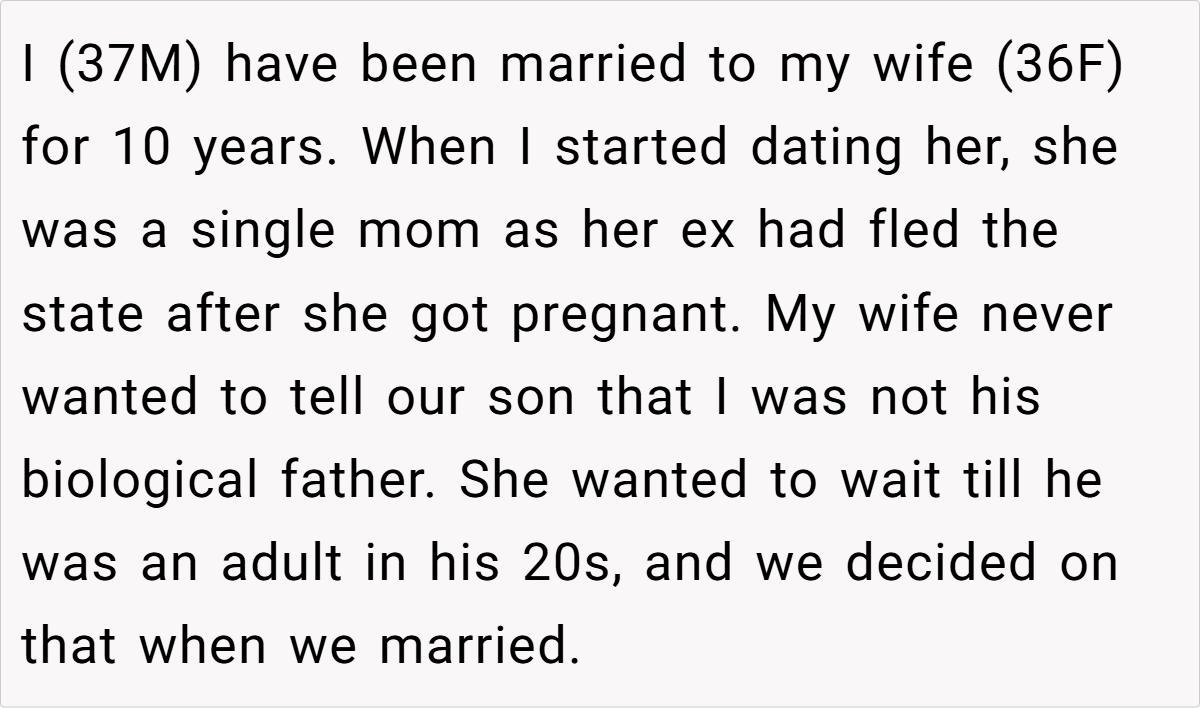

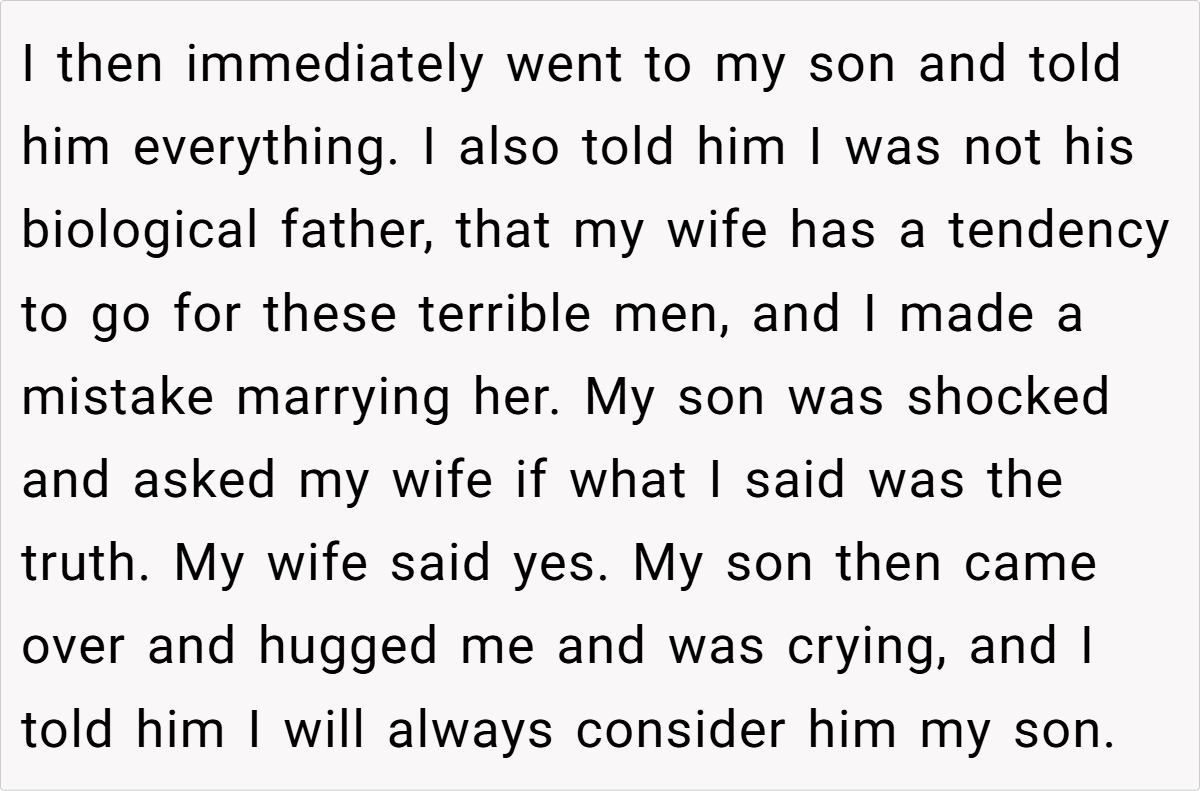
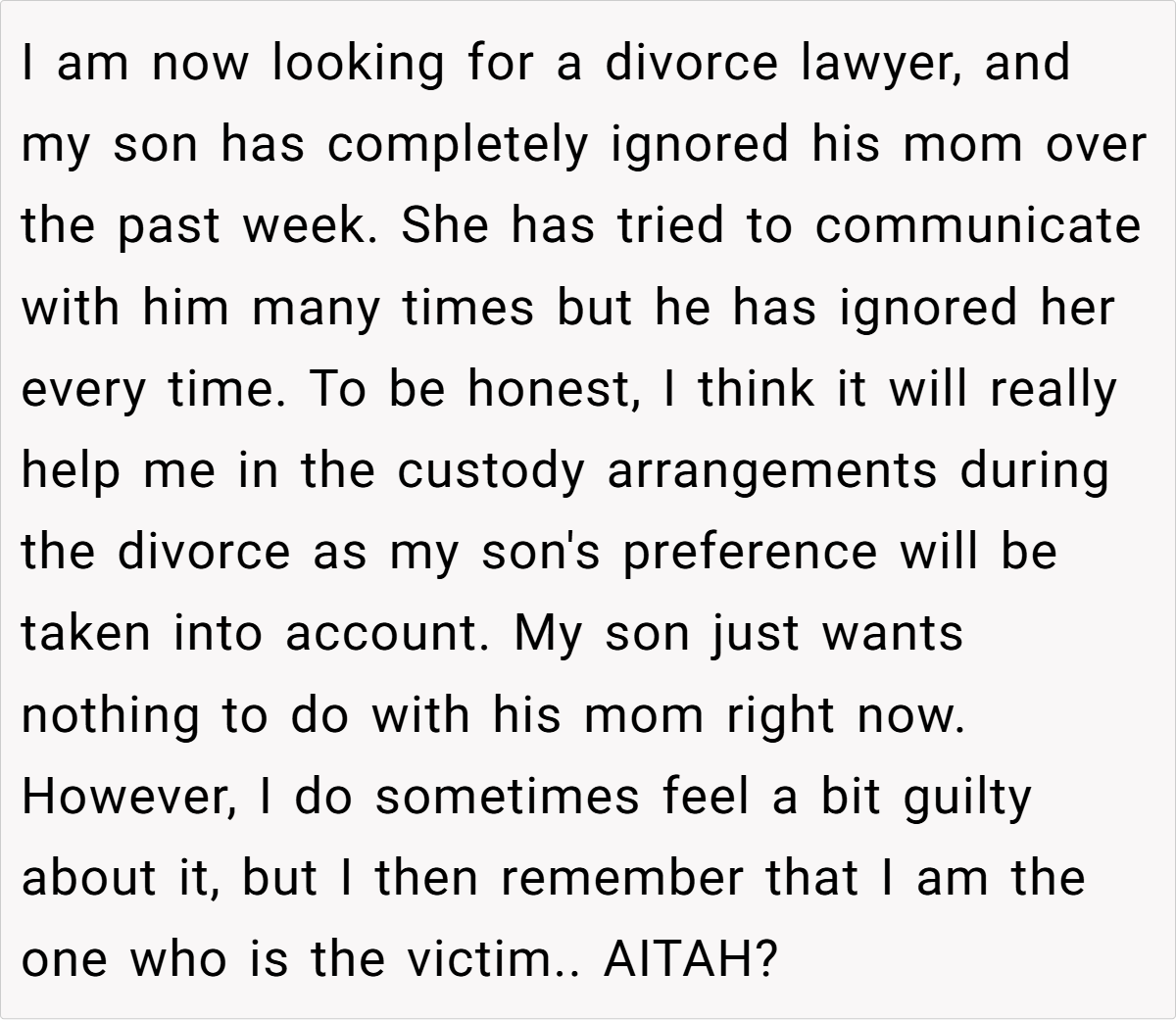
Experts in family dynamics warn that while marital betrayal can inflict deep personal pain, using a child as a battleground in adult conflicts is a dangerous misstep. In this case, the father’s decision to reveal sensitive information about his paternity—not as a measured disclosure but as a means of retaliation—can have profound, lasting consequences. Relationship specialists emphasize that moments of betrayal demand careful, compassionate handling rather than impulsive, vengeful outbursts.
When a parent discloses such life-altering details during an emotionally charged period, it risks shattering a child’s sense of identity and security. Many experts, including clinical psychologists like Dr. Miriam Kirmayer and Dr. Jaime Zuckerman, note that children thrive when shielded from the full brunt of adult conflicts. Instead of serving as a protective gesture, this revelation appears to be weaponized, aimed more at punishing the unfaithful spouse than at supporting the child through a turbulent family transition.
Furthermore, by framing the revelation as evidence of his wife’s poor choices—and implying that the child is a byproduct of her mistakes—the father inadvertently places the child in a position where loyalty is forced rather than nurtured. This approach not only deepens the immediate emotional turmoil but also sets the stage for long-term trust issues within the family.
Ultimately, experts caution that while the pain of infidelity is undeniable, the true priority should be preserving the child’s emotional well-being through thoughtful, guided communication, rather than using familial truths as leverage in a custody battle.
Here’s what the community had to contribute:
The community’s reactions are overwhelmingly critical of the father’s approach. Many commenters argue that while the wife’s infidelity is undeniably hurtful, using such a sensitive revelation as a tool for revenge only deepens the emotional damage.
They emphasize that exposing the son to these adult issues in such a harsh manner can leave him confused, hurt, and caught in the middle of the conflict. Overall, the consensus is that the child should have been shielded from this information, and that both parents should prioritize the son’s emotional well-being over using family secrets as leverage in a custody battle.

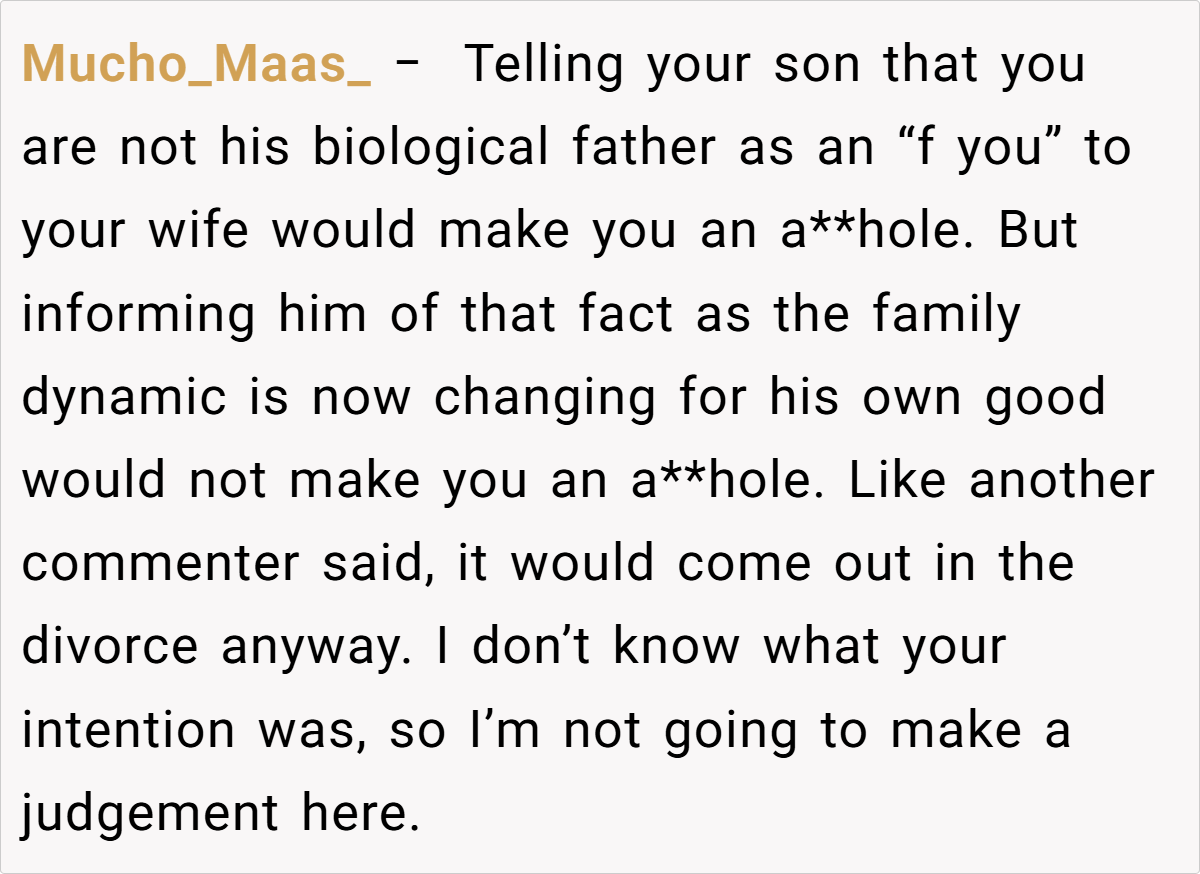

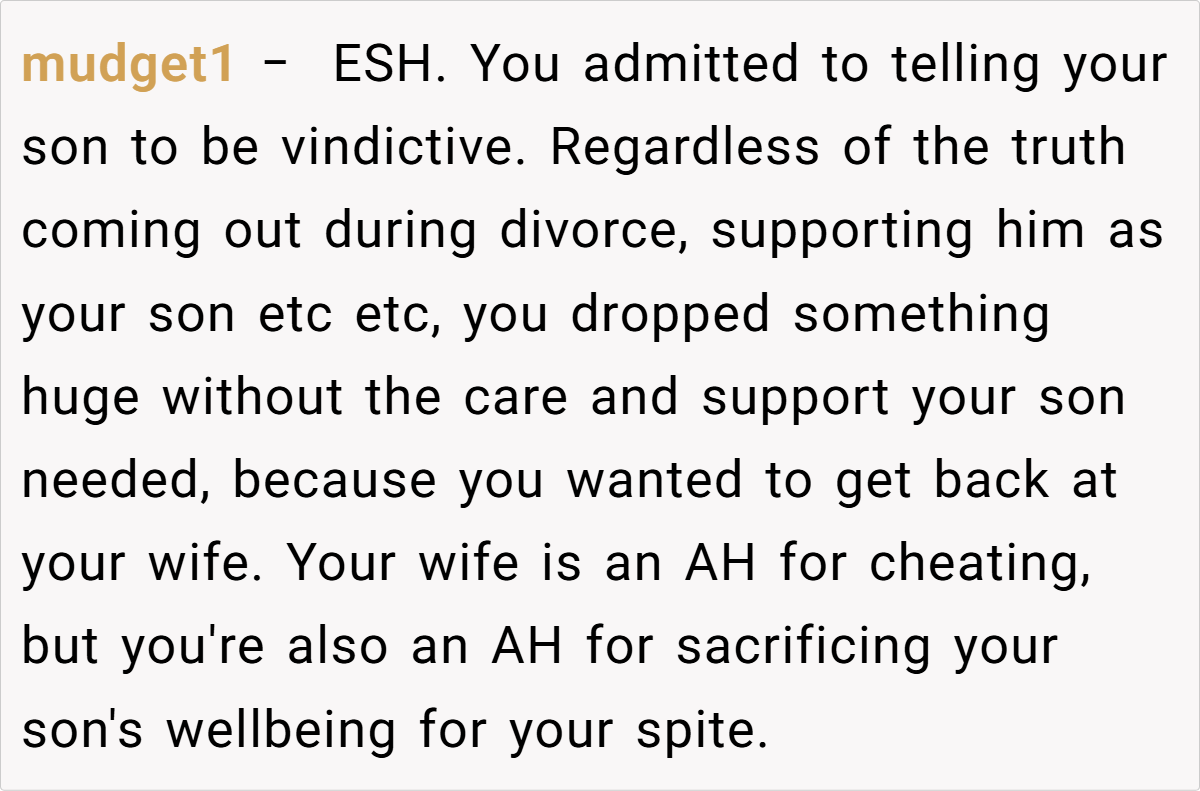
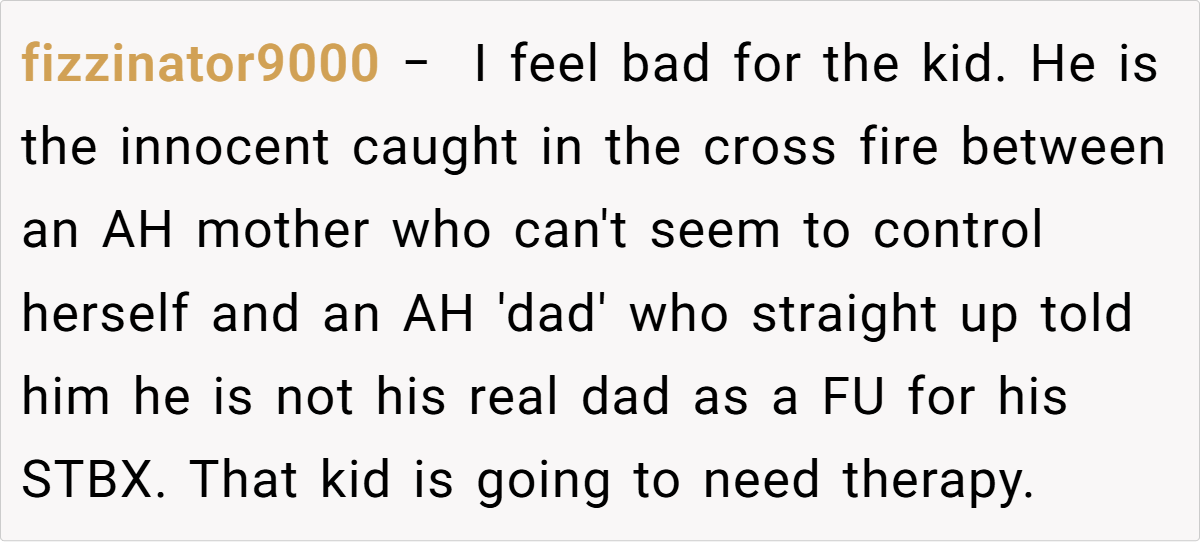
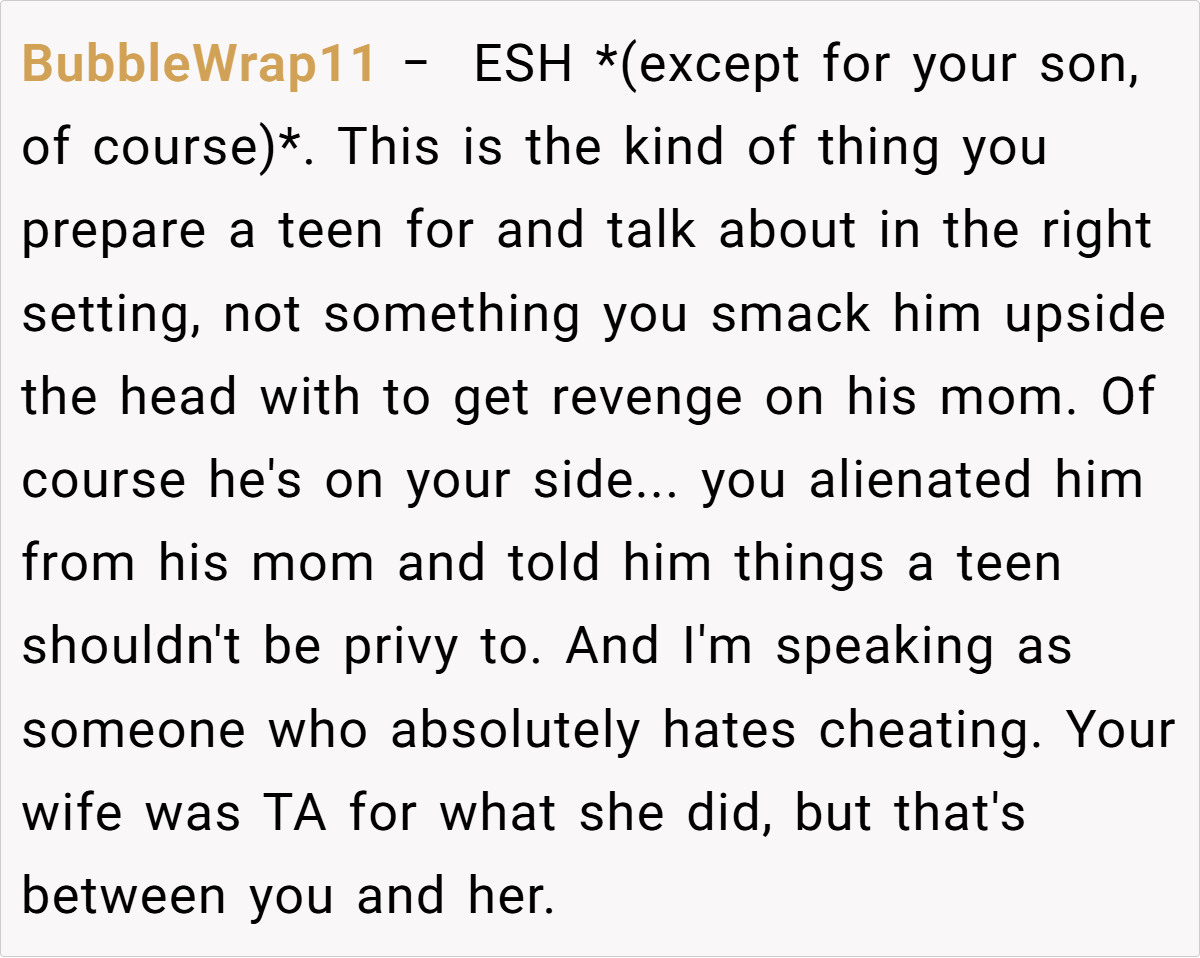
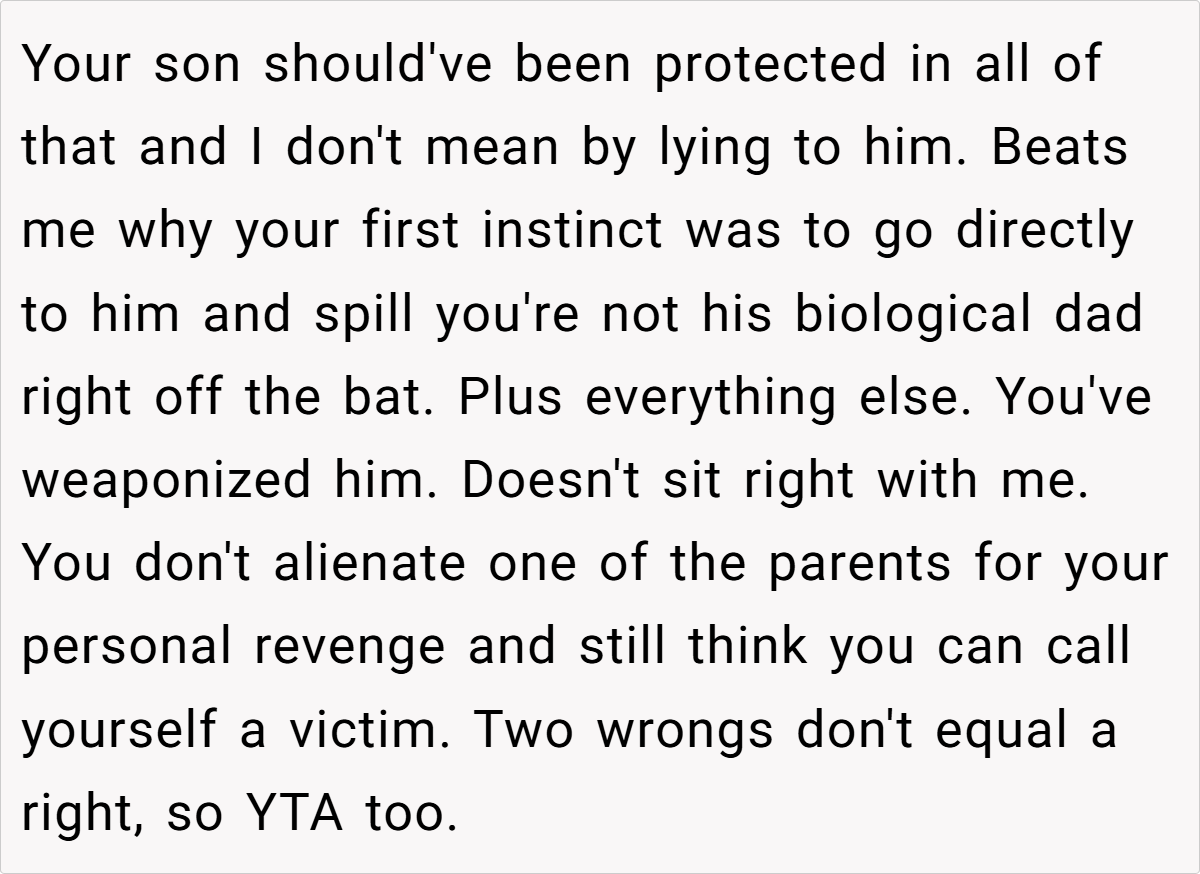



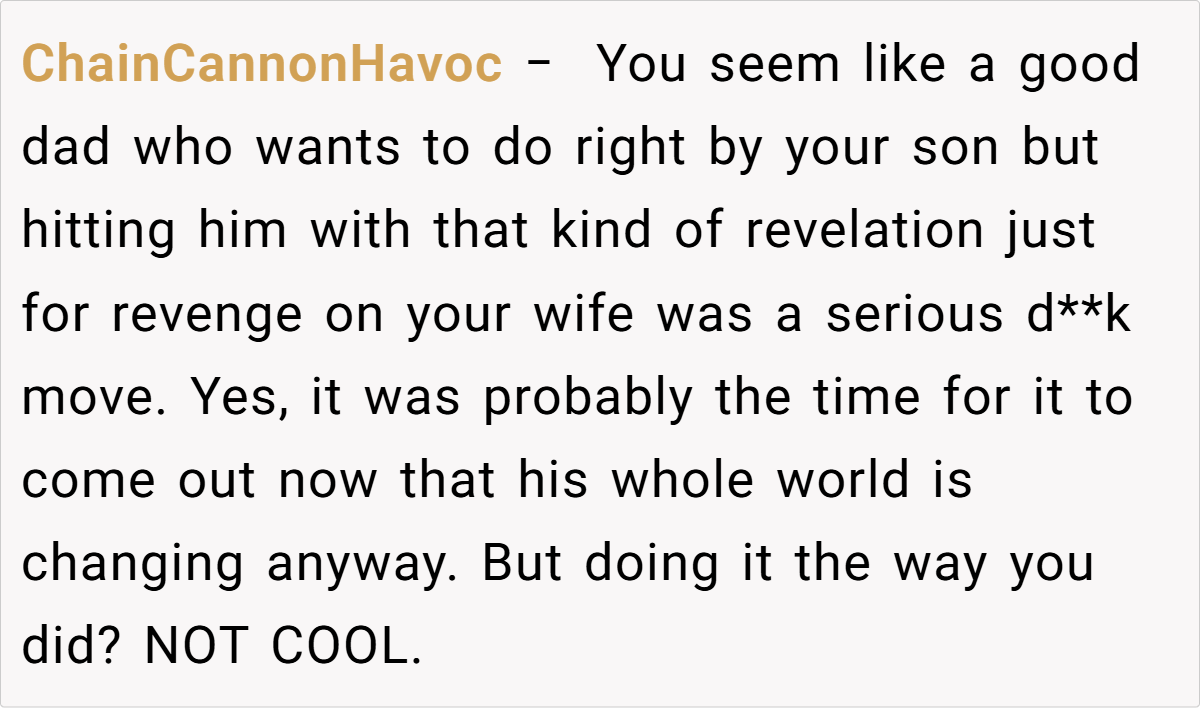
This heartbreaking scenario shows that even when betrayal leaves one feeling like the sole victim, resorting to vindictive measures can inflict deep, lasting harm on innocent bystanders. While the father’s pain is understandable, using his son as a pawn in marital warfare complicates custody battles and damages the child’s emotional foundation. Balancing personal hurt with the need to protect a child’s well-being is a delicate art—one that requires compassion, careful communication, and professional guidance.
What do you think? Can revenge ever justify exposing such painful truths to a child, or should personal grievances be kept away from those who deserve protection the most? Share your thoughts and experiences in the comments below—let’s open up a discussion on how to navigate these difficult family dynamics.

